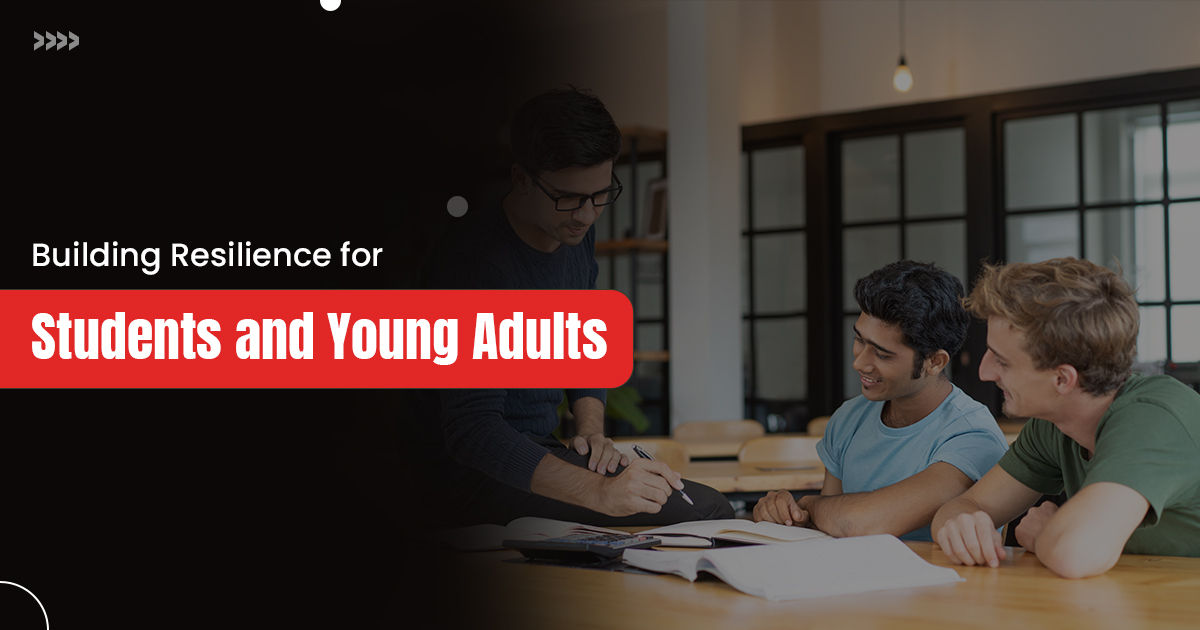
Building resilience for Students and Young Adults
The success of students depends on their ability to withstand setbacks. Although challenging circumstances can occur at any time, college students may find that facing setbacks and obstacles during this new chapter of independence discourages or even derails them. This discouragement is because they may already be dealing with a number of additional stressors at once, such as hectic class schedules, extracurricular activities, and competing demands from work, study, and social life.
Students who lack resilience may experience anxiety, depression, or the use of unhealthy coping mechanisms to manage burnout. Therefore, a youth resilience program is important for students and young adults to build resilience in order to adapt and overcome challenges that come their way.
Ways to build resilience for students and young adults
The following are a few ways to build resilience for students and young adults:Encourage positive emotions
Positivity improves one's ability to solve issues and control tension and anxiety when confronted with fear, disappointment, and rejection. Students can effectively enhance their overall optimism by learning to endure and manage negative emotions via the practice of positive thinking and mindfulness. Provide online or in-person meditation courses and encourage students to create affirmations that will uplift their mood by posting them on a wall or board. Ask students to write down one thing for which they are thankful to help them focus on the positive aspects of their lives. This practice can help students feel happier, more connected to others, and inspired to see the bright side of things instead of the negative.Focus on the value of well-being and good health
In addition to being psychological, resilience is also physical. Students need to feel well physically in order to feel powerful and prepared for the difficulties of life. Students' personal welfare and mental health will also improve as a result, in addition to keeping them physically and mentally active. They will become stronger, more capable, and more resilient as a result. Leading a group conversation about healthy behaviors is a fantastic method to get students thinking about their health and wellness. Make a list of the good habits your students propose, such as eating five pieces of fruit or vegetable a day, after asking them to mention one. Once the list is finished, have the children select three healthy practices they will attempt that week. Ask students and young people to consider how these behaviors have affected them after a week has gone by. Request that they select an additional three for the upcoming week.Make students aware of their body language
All too frequently, emotional regulation is discussed without first assisting those who are experiencing dysregulation in identifying the symptoms. By implementing social-emotional learning into your school's routines, you can encourage kids to discuss how their bodies feel, whether they are hungry, nervous, exhausted, or anxious. For example, ask students to express their feelings at the beginning of the day. Ask children to identify and feel the emotions of fictitious characters during story time or lessons.Encourage a feeling of capability
Much self-discipline is needed to make the adjustment from a highly structured and regulated childhood to a more relaxed schedule in college. This can be particularly difficult for some students who may have executive functioning issues, such as difficulty ordering, managing their time, or being firm. It can be challenging to finish activities and break down processes if your teacher isn't monitoring your progress every day. There may be a backlog of work and missed deadlines, which can leave one feeling inadequate and frustrated. Most significantly, students will learn how to evaluate barriers and choose the most effective course of action. They will also learn how to acknowledge victories and draw lessons from mistakes. They will also feel confident and self-assured in their ability to recover and soar to new and higher heights. As a result, they will also feel closer to others.